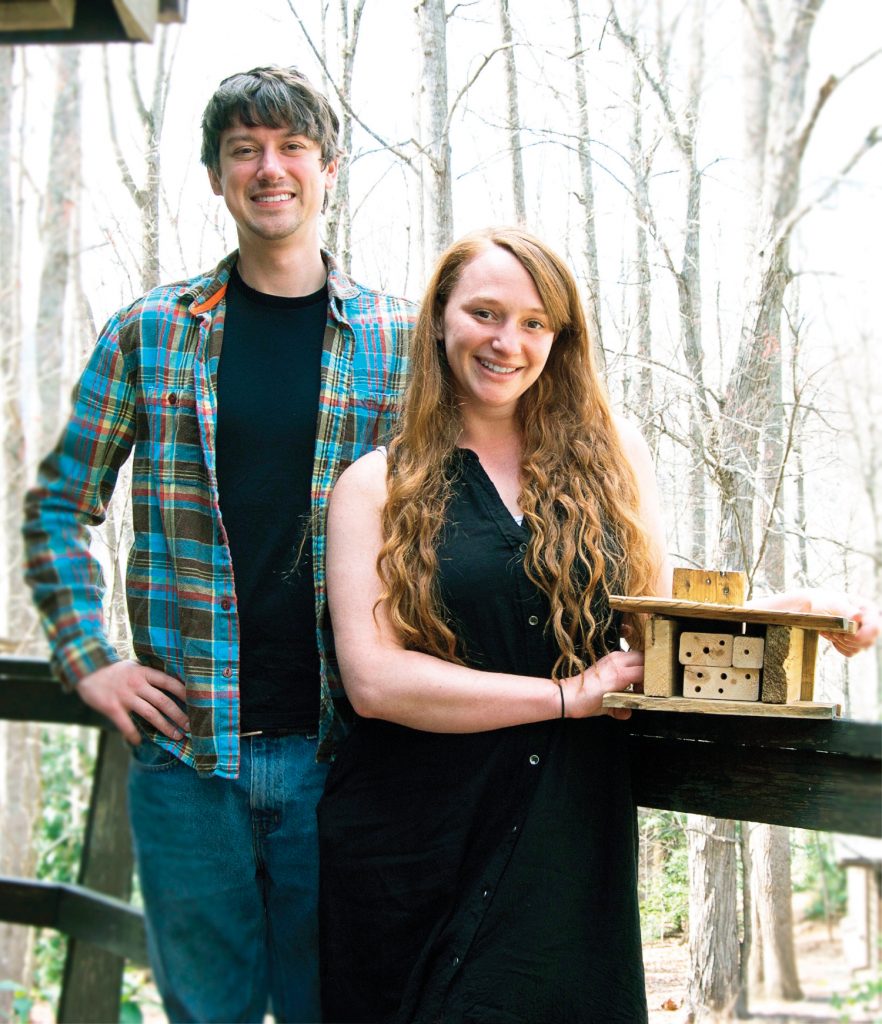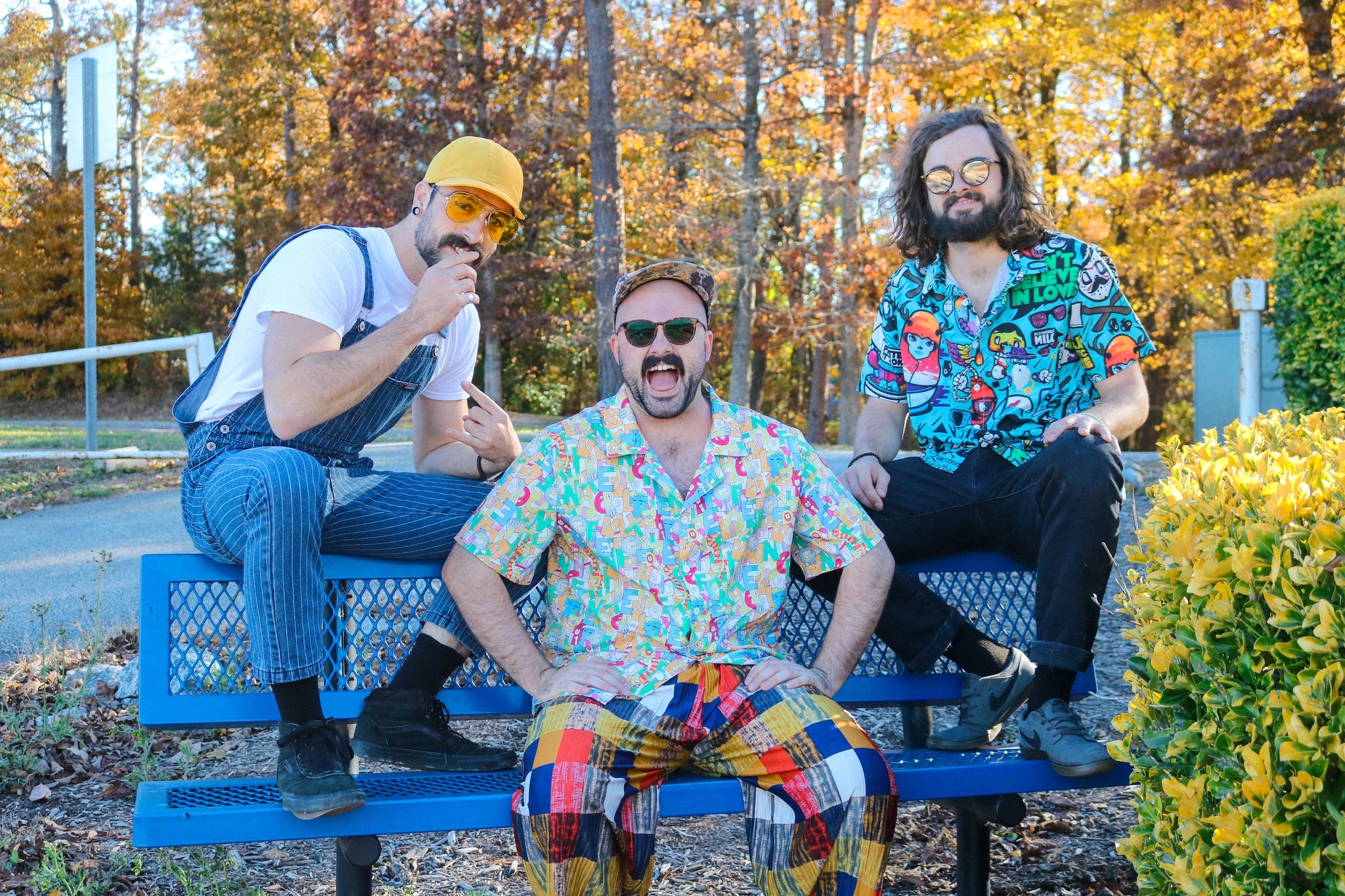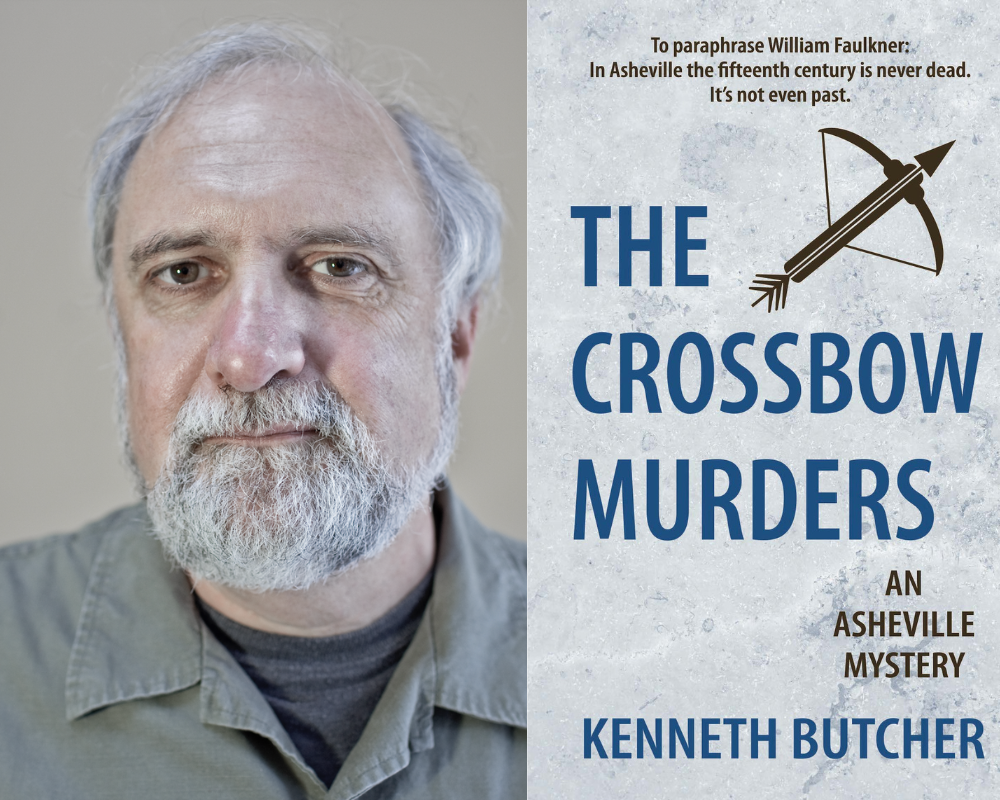
Garden Jubilee, the largest gardening festival in the region, is held in downtown Hendersonville every Memorial Day weekend. This year, as part of the event’s lecture series, nature educators Jill Jacobs and Brannen Basham of Spriggly’s Beescaping in Waynesville will deliver the latest buzz on pollination science and conservation efforts.
You’re saying honeybees aren’t the main attraction anymore?
Brannen: It’s actually better to have native bees [carpenter bees, mason bees, bumblebees] than honeybees [a 1600s-era European import]. They are far more efficient at pollinating many plants, especially those native to North America … we need them to pollinate most of the fruits, vegetables, and nuts we eat.
Jill: There are also lots of highly beneficial native pollinators you can attract to your yard or garden, even in a manicured landscape. Just keep a pile of leaves or mulch in a remote corner. That provides vital overwintering habitat for species like bumblebees.
Are there ordinarily dreaded insects that are beneficial pollinators?
Brannen: Nobody likes to get stung by a yellow jacket, but they pollinate and provide free pest control. And when they are away from their nests, they are surprisingly docile. And solitary wasps eat garden pests.
Is it true that wasps pollinate figs and die inside them?
Jill: That’s one of Brannen’s favorite things to talk about.
Brannen: There are a lot of types of figs that are only pollinated by special fig wasps. She squeezes herself in there, and it’s a one-way trip. She lays eggs in there and dies, and young wasps grow up and come out. Then the fig secretes special enzymes that digest what remains of the dead wasp.
What about bats?
Jill: They are so cute! Have you ever looked at one up close? They look like little dogs with wings. And they’re extremely beneficial.
Brannen: A lot of bats in this area are in trouble due to fungal disease, and are declining in numbers. But you can put bat houses in trees on your property to help them, and they’ll help you with pest control for things like mosquitoes.
Are they pollinators?
Jill: The bats that drink nectar are in warmer places like South America. Around here, bats are not so much pollinators. Pest control is what they do best. Moths, which are fascinating, are our only night pollinators.
Brannen: Moths are an unappreciated cog in the eco system because they are basically invisible, since they pollinate unseen at night. But they are vastly important for night-blooming plants.
Will your talks at Garden Jubilee be for a general audience or expert level?
Jill: We present at a level that is 5th grade and up. We also created a larger-than-life version of what a bee tunnel looks like. So you can see how native bees live in their natural habitat.
Brannen: There will also be different models of bee houses on display.
Are those like birdhouses, but for bees?
Jill: Yeah. And don’t worry, we bring just the cabins, not bees. Although we almost always have an interested mason bee or two come around, to check out the houses.
Garden Jubilee happens in downtown Hendersonville 9am-5pm on Saturday May 25 and Sunday, May 26. Spriggly’s Beescaping will speak at 10am on Sunday. For more info, see visithendersonvillenc.org/garden-jubilee. For more about Spriggly’s Beescaping and information about how to set up beehouses, see sprigglys.com.



